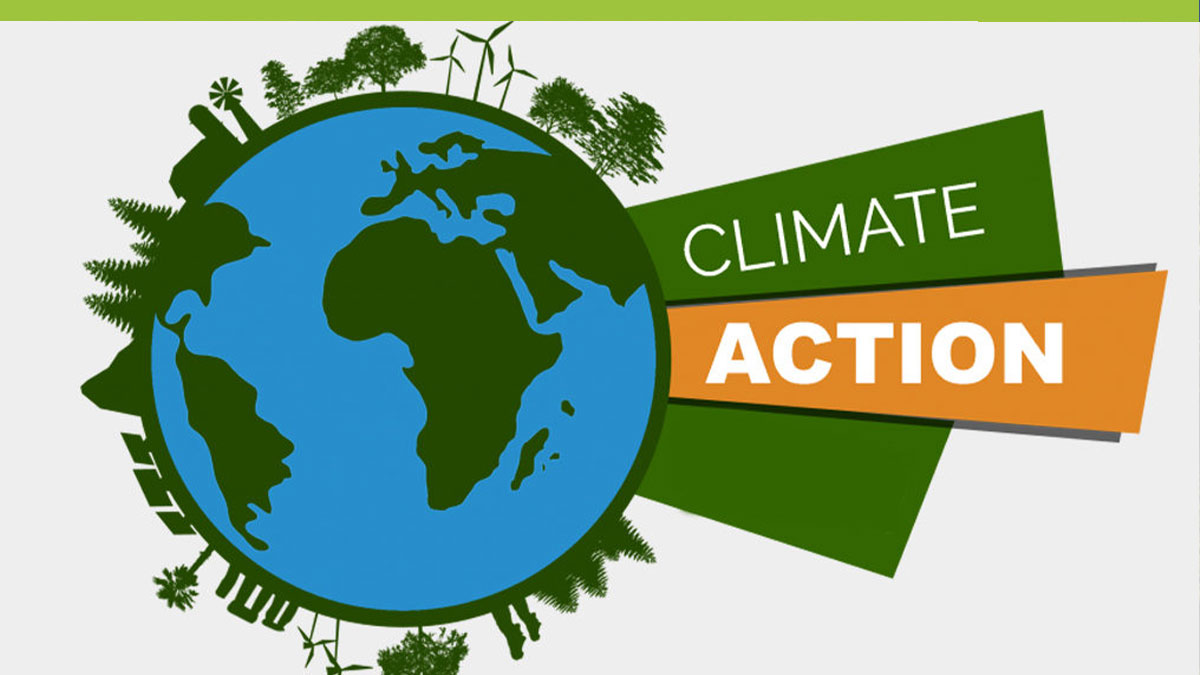Call to submit ongoing or completed case studies on localized climate action in climate change mitigation and adaptation. This book publication primarily focuses on projects implemented by State or Central Government bodies, Union Territories, and other government organizations. Trusts, Foundations, private entities, and NGOs working with the state or central governments can also submit their project case studies.
This publication aims to enhance and increase the knowledge base in designing, planning, and implementing low-carbon projects in India. It also aims to support the readiness of state-level actors in climate financing models.
This publication is a part of India’s Green Climate Fund project, implemented by MoEF&CC with UNDP’s partnership and GCF’s funding. Bharti Institute of Public Policy at the Indian School of Business, together with UNDP, is documenting the case studies. The project aims to institutionalize climate finance in the country by enabling direct access entities, State Governments/Union Territories (UTs), and private sector entities to program, channel, and deploy climate finance effectively in alignment with national and sub-national national priorities. The project will design and develop needed frameworks to guide future climate investment in alignment with India’s ambitious climate goals.
Why do we need this book?
India is particularly vulnerable to climate change because of its large population and ensuing resource shortage. It also depends on its geographical diversity, reliance on monsoon cycles, and complex socio-economic conditions. National and international efforts to drive India to reach its climate targets critically require in-depth study and analysis of local climate actions and their consequences. This effort will also enable state-level actors to think beyond their project’s boundaries and prepare them to take on championship roles in aiding the country’s efforts to improve its resilience to climate change.
Who are the target audience?
The book is mainly intended for practitioners and policymakers at the federal and state levels who can obtain bottom-up perspectives on project execution. Researchers can take concepts from these case studies for further in-depth study and analysis. The book shall provide insights into detailed evidence-based data and a description of the project working first-hand from the project holders, a critical viewpoint for institutional funding organizations. Lastly, students in sustainable development, urban management, policy studies, and climate change can get a valuable understanding of the Indian government’s climate change projects across different sectors and regions of the country.
Selection criteria for publication
- Demonstrated success: The project should be able to demonstrate success in achieving its objectives through sufficient evidence.
- Innovative approach: As one of the key differential criteria from their peers, projects should be able to prove their new and improved ways of success.
- Diversity of regions and sectors: The book aims to include projects from near and far-reaching corners of the country. Projects shall be selected from diverse themes in climate action to cover a large knowledge base.
- Transferability: A key factor for selection will be the ability of the project know-how to be replicated with regional variations across other parts of the country.
- Data availability and evidence: Projects at the nascent level of operations without sufficient ground-level evidence cannot be considered.
Key steps during the publication process
- Call for Proposals: Participants can select one or more of their projects and submit them for nomination via the information below.
- First selection: Best projects shall be selected to give a ten-slide PowerPoint presentation to the expert panel in February’24.
- Second selection: Final case studies for publication shall be announced, and participating teams shall attend a writer’s workshop at the Indian School of Business Campus, Hyderabad.
- Drafting and editing the manuscript: The project contributors shall submit the first draft, evidence, and other relevant data. The editors shall further work on this and peer review for accuracy until the final draft manuscript.
- Book Publishing and Launch: The book is scheduled for launch in February’25 and is intended for national and international distribution.
What do you gain? As a project holder or project partnering organization, you gain an opportunity to;
- Showcase your innovative ideas and actions, approved by a panel of experts.
- Publish your project on a national and international platform at no cost.
- Be trained by proficient academicians on project writing skills drawing out effective criteria.
- Set an example for others in climate action.
- To enhance your funding possibilities.
Last Date of Submission: 10th February, 2024.
To submit your project, please fill in the basic details in the link given. Click here For any further assistance, please contact LocalClimateAction@isb.edu We shall contact you for more information upon receiving your submission.
